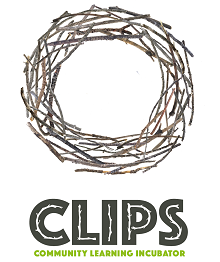Relationship: Love, care, sexuality
Love between partners is not only about emotional feelings. If it is to last it needs partners to decide together to walk their common path. If they have children, parental love adds the need of a protective environment with deep friendships and supportive community.
In any case love should entail self-care, care of relationships, meaningful work, joy and health. In the modern society, troubled with many environmental and societal problems, love should potentially include ecology and justice as two of the core values.
Community life can be compared to an extended marriage; close community means stronger bonds; but also more opportunity for friction. Pressing a balloon will cause the molecules of gas in it to meet and collide with greater intensity; in a similar way people in close communities meet and collide with greater intensity. This can create frictions and “heat”. To keep level of stress (heat) due to friction low, it is wise to design appropriate individual and common spaces, making sure there is the right ratio between the two.
In co-housing projects people live in private units, have their individual source of income and share only a few things, such as common garden, a room where they spend leisure time or dine together, etc. Encounters in such spaces are generally not so intense. However, as we know, intense relations can start anywhere at any time, and even in loosely bound groups like associations, transition town initiatives, food coops or even workplaces it is not uncommon to experience and witness emotional dramas that derive from personal attraction and unexpected love feelings.
In communes, on the other hand, private space is often limited to a bedroom, most other things are shared. People have a high chance of encountering each other very often (sometimes even too often). Tensions, frictions and conflicts are always around the corner, unavoidable. Communes address this by choosing a conflict resolution processes which fits their community structure.
When people live closely together in a large enough group, emotional feelings are bound to arise among them. This can bring enriching dynamics, but it often causes turmoil too. Sharing intimacy and sex lights a spark of uncontrolled – and uncontrollable – energy and can turn tables like feathers, transform people radically and send joy, enthusiasm, and endorphins like seeds in the wind, following human ancestral call.
Some attractions invariably take lovers beyond generally acceptable manners in the community. Some communities deal with this issue by limiting acceptable relationships. Communities with strong religious basis, per example, set monogamous relationship as the one and only option. In the Western society, where “serial monogamy” is generally accepted, falling in love with a new person also means breaking up with the previous partner. Some communities are choosing to go beyond prevailing patterns of heterosexual monogamy, thus they have to deal with intense complexities and rely on appropriate methods to resolve them.
Regardless of perception of love relationships, break-ups do happen in the community and new relationships arise. In such cases the “abandoned” partner is the one who often feels hurt. That is when jealousy, rage, resentment and many other powerful emotions spring up from the innermost – and concealed – psychological sphere, directly linked with the subconscious. These emotions are a part of human nature, they should be accepted as such and not blamed, judged, suppressed or ignored. However, choosing to live communally requires a commitment to the general principle that each person takes responsibility of their behaviour in order to keep social relations healthy.
In communities, just as in mainstream society, some couples are starting their relationships while others are breaking up. In communities, however, former couples and their new partners often continue to encounter each other in community spaces and there is a chance and even a need for making up and healing wounds, if any. In the case when one of the former partners decides to leave the community, such decision means not only leaving home and parting one parent from children, but in many cases also parting from a number of very close friends, and work colleagues.
Some communities follow a set of agreements and use social tools (like ZEGG-Forum) to shed light on these issues in a non-violent way, to allow sorrow and pain to be voiced, seen and heard collectively. This results in emotions being brought out in the open, elaborated and honoured, but on the other hand preventing them from hovering over the community as a threatening shadow, engulfing energy and creating more tensions.
More and more people in communities are coming to the conclusion that the most important element in love relationships is not the exclusiveness of the relationship, but rather truthfulness, trust, openness, and the conscious consent of everyone involved. Speaking openly about romantic attraction that extends beyond the existing partnership can bring relief and even imbue the existing partner with new energy. Sometimes opening an existing partnership to new partners turns out to be a way of saving the partnership that would otherwise end in the paradigm of serial monogamy.
Man-woman relationships are the object of strongest biases in practically every society in the world. People stick to their general tradition even after they have realised that it does not really serve them, that it is harmful or even insane. Some communities have decided to take this realisation seriously, to explore various biases and see what the alternatives might be. Such communities have come to a conclusion that mutual trust and care, endless patience and supportive listening act as a soothing balm for a suffering soul, as most people know problems in love relationships hurt a lot. Individual therapy is also an appropriate resource to support and help individuals in times when pain and confusion are too intense, especially if internal resources are not adequate for the emerging needs.

